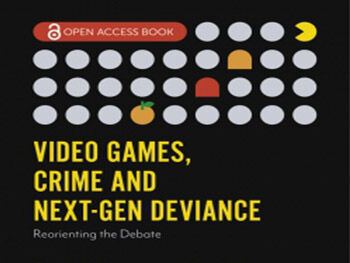New book explores video games and violence from a fresh perspective
 A new book release from researchers in the School of Social Sciences critically analyses the effect of video games and the wider industry on society, while arguing against popular media discourse which positions video games as a catalyst for violence.
A new book release from researchers in the School of Social Sciences critically analyses the effect of video games and the wider industry on society, while arguing against popular media discourse which positions video games as a catalyst for violence.
Video Games, Crime and Next-Gen Deviance, written by Craig Kelly, Adam Lynes and Kevin Hoffin collects research encompassing issues across the video games industry.
These topics include LGBTQ representation, depictions of criminality and the more recent trend of gambling mechanics and predatory sales tactics embedded in some video games.
Gambling regulation hits video games
On 2 July, the House of Lords Gambling Committee called to regulate loot boxes under gambling laws.
Loot boxes are an oft utilised mechanic in online video games, where random digital items can be purchased with real money, encouraging players to purchase multiple boxes to obtain higher-value items.
As stated in the book ‘The ability for a person to take part in ‘pseudo-gambling’ through video games leaves them open to the implications that can occur from excessive traditional gambling.’
Kelly, Lynes and Hoffin argue that issues such as these should be the focus of video game criticism, not simply the blinkered approach of the past where violent video games have been viewed as a catalyst for violent acts.
Reorienting the debate
The book began as a response to the popular and political discourse around the influence of video games on violent crimes such as mass shootings, as well as the studies that have previously explored this connection. Craig said:
‘Previous studies have tended to go back and forth with little conclusive evidence. This book, and the wider project, seeks to finish the benign discussion of video games vs violence and progress onto exploring other harms that can be caused, embedded, commodified or embellished within video games.’
Craig and his colleagues hope this book will help reorient the debate around video games and criminality, taking a more nuanced approach which responds to current trends, rather than using the medium as a scapegoat.
‘Our next stage is to stimulate further debate and hopefully others will begin to recognise the harms from their own areas of expertise and we can really begin to pay the attention video games deserve within criminology.’
Video Games, Crime and Next-Gen Deviance is an open access book, which you can download for free.